What Do Wolf Dogs Eat? (Raw or Kibble? Portion Sizes + Frequency)
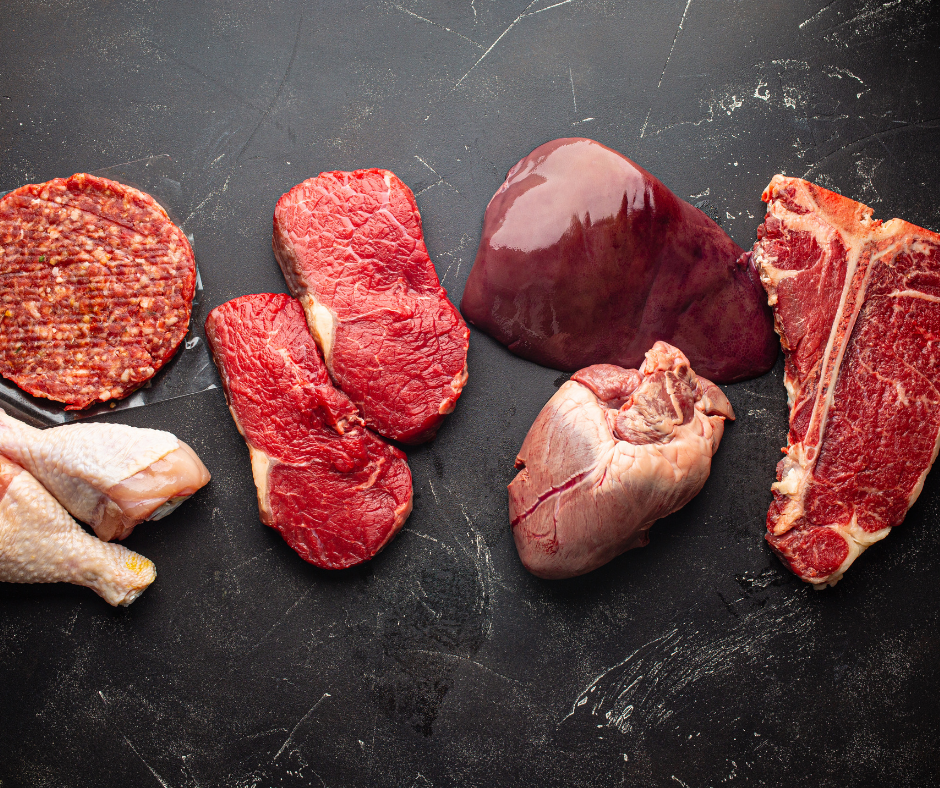
Peer reviewed by: Lori Wynn, Guardians of the Wolves
Table of Contents
ToggleWolf Hybrid + Wolf Dog Diet
Wolf dogs are difficult to maintain as pets for a variety of reasons, but one of the most important is that they have different nutritional needs. Unlike domesticated dogs, wolf dogs have different digestive systems that require a diet high in protein and fat.
For potential owners, it is important to do extensive research to make sure they are prepared to meet the unique dietary needs of their wolf dog. Otherwise, they may find themselves struggling to keep their wolf hybrid or wolf dog healthy and happy.
In this blog post, we will outline the best diet for wolf dogs and wolf hybrids and provide some tips on how to feed them properly.
Difference between a Wolf Hybrid and Wolf Dog
A wolf hybrid is a cross between a domestic dog and a pure wolf or a wolf dog and a pure wolf. The result is what is called an F1 cross or first-generation wolf hybrid. In order for an F1 match to occur, the pure wolf must usually be kept in captivity.
A wolf dog is the multi-generational breeding of a wolf dog to another wolfdog or dog. The vast majority of wolf dogs are actually 2, 3, or 4 generations removed from a pure wolf. In other words, their lineage includes one or more dogs between the pure wolf and the wolf dog.
Dog Nutrition vs. Wolf Nutrition
As any dog owner knows, offering a nutritious diet to your dog is critical for their overall health. But did you know that the nutritional needs of domesticated dogs are actually quite different from those of their wild ancestors?
Diet of a Domesticated Dog
Dogs are omnivores, with highly developed digestive systems. This means that they can digest both plant and animal material. Typical dog food contains a variety of ingredients, including meat, grains, vegetables, and fruits. The ratio of these ingredients varies depending on the specific recipe, but all dog food must meet certain nutritional standards in order to be considered complete and balanced. In general, meat provides domestic dogs with the necessary protein for muscle development and maintenance, while grains and vegetables offer essential nutrients like carbohydrates, fiber, vitamins, and minerals. Fruits are often included as a natural source of antioxidants.
Diet of a Wild Wolf
Wolves on the other hand are true carnivores, consuming almost entirely meat. A typical wolf diet consists of deer, elk, moose, and beaver, though they will also eat smaller prey such as rabbits. In fact, the vast majority of their diet is made up of large ungulates, which they hunt in packs. While wild wolves eat some vegetation if it is available, it plays a very small role in their diet and they are able to digest it only minimally. This is due to the fact that their digestive system is designed specifically for meat consumption and lacks the necessary bacteria for breaking down plant matter.
What Do Wolf Dogs Eat?
A raw diet is the best way to ensure that your wolf dog gets all the nutrients they need. Raw diets helps to maintain their lean and muscular physique, as well as provide the energy they need to stay active.
This means feeding them a variety of raw meat, bones, and organs, with some fruits and vegetables. While it may take some time to prepare this type of diet, it is worth it to know that your wolf dog is getting everything they need to stay healthy.
To ensure that your wolf dog gets the finest possible nutrition, make sure that the meat is fresh and of good quality. Regularly rotating different types of meat will ensure they’re getting all the nutrients they need to thrive.
What Type of Raw Meat Can a Wolf Dog Eat?
Wolf dogs and wolf hybrids are carnivorous animals and their digestive system is designed to process whole bones and raw meat based diets. These meat-based diets, also known as biologically appropriate raw food or BARF diets, typically consist of uncooked ingredients from either livestock or wild animals. Let’s take a look at the raw meat wolf hybrids and wolf dogs can eat.
Raw Chicken
Chicken carcasses, backs, necks, legs, wings, and organs are all good foods for wolf dogs. In addition to being a good source of protein, raw chicken also contains high levels of essential nutrients like amino acids and fatty acids, potassium, phosphorus, magnesium, and vitamin B12. It’s also relatively easy for your wolf dog to digest. Wolf dogs crave hard bones and those found in raw chicken are often their favorite. Cooked chicken bones can splinter and cause digestive problems.
Raw Beef
Wolf dogs can eat any cut of beef, including ground chuck, stew meat, rib meat, and entrails such as beef liver and heart.
Not only is this an excellent source of essential vitamins and minerals, but it is also rich in high-quality protein. A single serving of raw meat contains important amounts of vitamin B12, zinc, selenium, iron, niacin, and vitamin B6. These nutrients play vital roles in cell production, metabolism regulation, immune function, and the transport of oxygen in the body. In addition to these health benefits, raw meat has anti-inflammatory properties that can help maintain joint health.
They might also consume marrow bones, beef tendons, and beef knee caps since they like them and help to clean their teeth.
Turkey
Another fantastic alternative is turkey. You can offer them ground turkey, necks, wings, backs, drumsticks, gizzards, and hearts.
Oily Fish
Sardines, anchovies, mackerel, salmon, raw or cooked. The omega 3 fatty acids in these fish are beneficial for inflammation reduction and keeping your wolf dog’s coat healthy. However, fish is high in mercury so be careful how much you feed.
Raw Meats of Wild Animals
Deer, elk, lamb, goat, and rabbit are all great additional sources of protein for your wolf dog.
Feeding organic or free-range meats can also help to reduce the risk of food sensitivities. By taking the time to ensure that your pet’s diet is well-rounded and complete, you can help create a lifetime of good health.
Should My Wolf Dog Avoid Raw Pork?
If you’re feeding your wolf dog a raw diet, pork is safe as long as it’s human-grade and you stick to lean cuts. Pork fat can be hard for dogs to digest, and over time it can lead to pancreatic issues. As with any new food, start with a small amount and watch for any adverse reactions like vomiting or diarrhea. If all goes well, you can slowly increase the amount of pork in their diet.
What about Salmonella?
Salmonella is a common, dangerous bacterial infection that can be found in all sorts of food. While the word ‘salmonella’ might conjure up images of raw eggs and undercooked chicken, it’s important to remember that this pathogen can be found almost anywhere.
Wolf dogs are incredibly resilient creatures, capable of withstanding bacterial loads that would cause illness in most other animals. This is because their stomachs are highly acidic, with a pH range of 1-2.5. This acidic environment kills most bacteria, keeping wolf dogs safe from potentially contaminated raw meat and other consumables.
In addition to the acid, they also produce a lot of bile. The bile is both anti-parasitic and anti-pathogenic. So if something potentially harmful isn’t entirely neutralized by stomach acid, the bile is a secondary defense.
Fruits and Vegetables
Many wolfdogs enjoy eating fruit and vegetables! Some of the most popular fruits among wolf dogs are strawberries, apples, and watermelons. However, pumpkin is one fruit that wolf dogs appear to enjoy immensely. Pumpkin is a great source of fiber and antioxidants, both of which are important for gastrointestinal health.
In addition, your wolf pup can consume vegetables. Sweet potatoes are an excellent source of vitamin A and should be baked, mashed or added fresh at mealtime and in very small amounts. Carrots, green beans and celery cooked or added fresh.
Tips for Picky Eaters
Like all animals, wolf dogs have their own preferences when it comes to food. While some wolf dogs may enjoy liver, others may be picky about organ meat. If your wolf dog is being picky about their liver, try giving them a freeze-dried honey-coated liver treat. This delicious treat is sure to please even the most finicky eaters, and it’s a great way to provide your wolf dog with the nutrients they need.
Resource Guarding
When owning a wolf dog, it is essential to be aware of the unique behavioral challenges that these animals can present. One such challenge is resource guarding, in which the animal shows aggression towards anyone who attempts to take their food or other valuable possessions.
To help prevent this behavior from developing, many owners choose to hand feed their wolfdogs for every meal. This keeps the animal accustomed to human presence when dealing with food and helps them to build trust with you. As a result, hand-feeding can be an effective way to manage resource guarding in wolf dogs.
Is It Safe to Feed My Wolf Dog Commercial Dog Food?
One important thing to remember is that wolf dogs and hybrids cannot be fed the same food as domestic dogs. Commercial diets that are designed for domestic dogs are not adequate for wolf dogs and wolf hybrids.
Many nutrients in these diets are lost during processing, and the dangerous health effects of grains and carbohydrates can be harmful to these animals. In addition, there are numerous purported toxins in commercial diets, ranging from by-products of processing to artificial preservatives and other additives.
For these reasons, it is essential that their diet is carefully planned in order to ensure they are getting all the nutrients they need. Standard dog kibble does not contain all of the required nutrients, and it will not satisfy your dog’s dietary needs. Even high-protein dog food will not be enough.
How Often + How Much to Feed
Puppies: Puppies must eat 4 meals each day until they are 12 weeks old, consuming a diet of ground beef or raw chicken wings, with eggs, goat yogurt, goat whip, and bones, feed your pup a diet high in fat for brain development. Once they reach 12 weeks old, they can be fed a more adult diet of 3-5 pounds of various meat or raw chicken leg quarters, depending on your animal’s appetite.
Adults: When it comes to feeding your adult wolf dog, there are a few different options to choose from. You can either offer meat-based meals in several small portions throughout the day, or in one large meal. You may also hide the food in the enclosure or yard, forcing your wolf dog to work for it. Depending on the individual animal, daily meat consumption can range from 3 to 5 pounds.
Fasting
Although wolf dogs have many physical and behavioral characteristics with their domestic counterparts, they also exhibit a number of traits more reminiscent to wolves.
One of these is the occasional fast. Every month or two, most wolf dogs will go without food for a day or so. While this may worry some owners, it is completely natural behavior for wolf dogs, and there is nothing to be concerned about.
In the wild, wolves often go for long periods without eating, and their descendant wolf hybrids and wolf dogs have simply retained this behavior. So, if your wolf pup skips a meal or two, don’t panic – it’s just a wolf dog thing.
Treats
Some great treats for your wolf dog include:
Chicken paws
Beef tenderloins
Frozen greek yogurt
Knee caps
Bone marrow
Turkey neck
Turkey tail
Duck parts
Bacon
Salmon
Boiled eggs
Raw eggs
Supplementation
A raw food diet can be a healthy and nutritious option for your wolf pet, but it’s important to make sure that you’re providing all the necessary nutrients. In addition to vitamins and minerals, your pet will need probiotics to maintain a healthy digestive system. Bone meal is also an important part of a raw diet, as it provides calcium and other essential nutrients. Other supplements to consider:
Glucosamine: is a popular supplement that is often used to treat joint pain and stiffness due to arthritis in wolfdogs.
Vitamin C: is another helpful supplement, as it can help boost the immune system and fight off infection.
Fish oil: A shiny, healthy coat is a sign of a well-nourished animal. One way to help improve the condition of your pet’s coat is to add fish oil to their diet. Fish oil is rich in omega-3 fatty acids, which are essential for maintaining healthy skin and fur. In addition, fish oil can help to reduce inflammation and can even boost the immune system.
Alfalfa and wheatgrass: Are two additional supplements that can help wolfdogs stay healthy by protecting them from internal and external parasites. These grasses are packed with essential vitamins and minerals, including proteins, antioxidants, and omega-3 fatty acids. They also contain lots of fiber, which helps promote a healthy digestive system and improves overall gut health.
Colostrum: Colostrum is the first milk a mother produces after giving birth. It is often referred to as “liquid gold” because of its many health benefits. For dogs, colostrum is especially beneficial because it contains immunoglobulins, which are essential antibodies. In addition, colostrum can help to relieve allergies, digestive problems, and even joint pain.
Diatomaceous Earth: Diatomaceous earth is a naturally occurring substance that is made up of the fossilized remains of diatoms, a type of aquatic organizim. The food grade variety is safe for consumption and has benefits for joint, skin, and colon health. It can also be used to kill fleas, ticks, lice or mites on your wolf dog.
When administering these supplements to your wolf dog, simply mix them into a small ball of ground meat. This will make it easy for your pet to consume the supplement without any fuss.
If you’re looking to keep your wolf dog healthy for years to come, make sure to include some or all of these supplements in their diet.
Consult Your Veterinarian
Talk to your vet about your animal’s specific needs. They can help you figure out what kind of food is best for your wolf pet and make sure that they’re getting all the nutrients they need.
However, don’t be afraid to try new things. There are lots of great holistic and organic options out there, and you might be surprised at how much your wolfdog enjoys them. Pay attention to what your animal is eating and how they seem to be doing. If you think they might need something different, talk to your vet and see if there might be a better option for them.
DNA Testing Can Help you Know What Diet is right for your Wolf Dog
Embark is the world’s most accurate dog DNA test, and it can provide invaluable insights into your dog’s health, ancestry, and more. With just a simple cheek swab, you can learn everything from your dog’s risk of certain diseases to which breeds are in its family tree. Whether you’re a first-time pet owner or a seasoned pro, an Embark DNA test is an essential tool for anyone who wants to ensure that their wolf dog is getting all the love and care they deserve.
Cost of Wolf Dog Diet
If you are thinking about owning a wolf dog, you need to be aware of the cost of their diet. This diet is much more expensive than any other dog diet, so you must take this into consideration as it is essential for their health and well-being.
So, if you are serious about owning a wolf dog or a wolf hybrid, be prepared to spend a bit more on their food. It is an investment that will pay off in the end.
What to Feed Your Wolf Dog
We hope this helped you figure out exactly what food to give your wolf hybrid dog. Check out our in-depth article if you would like to learn more about what it’s like owning a wolfdog as a pet.

Love it? Pin it!
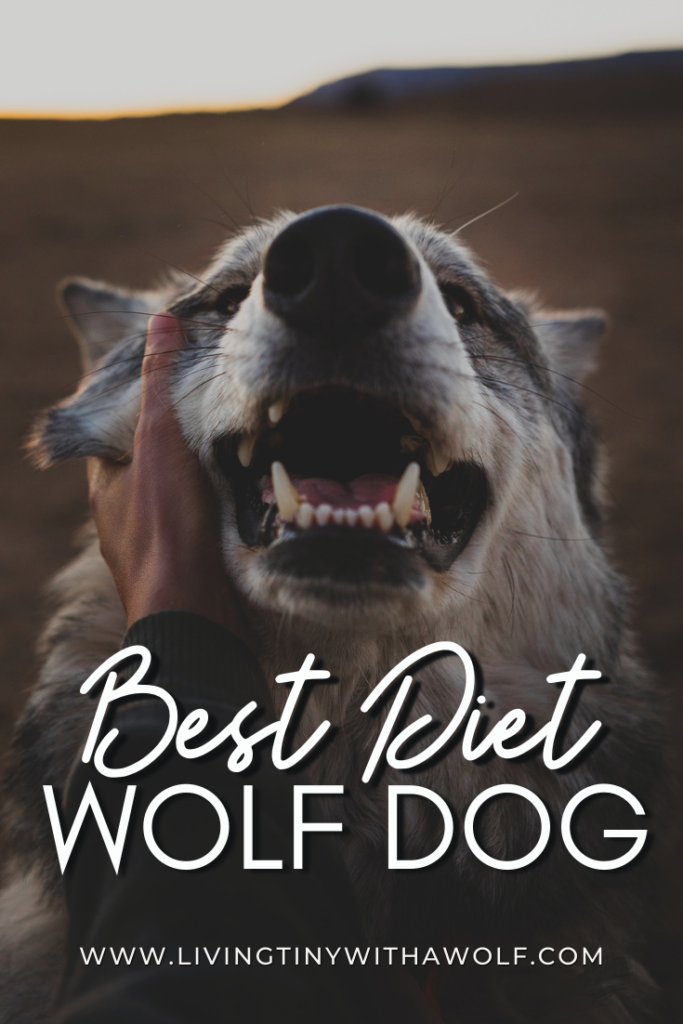
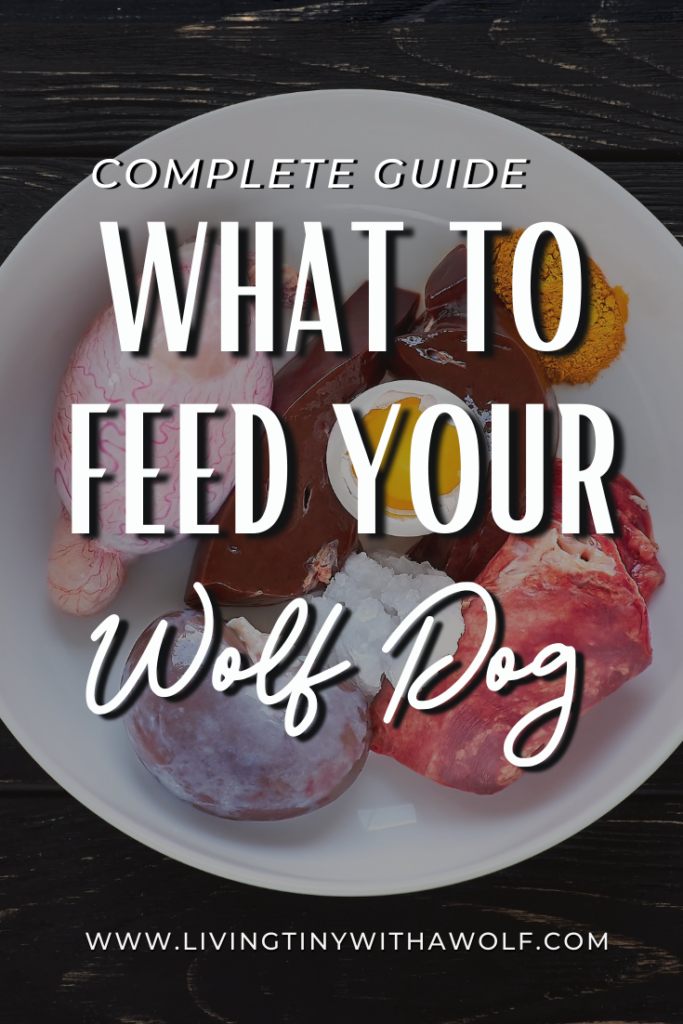
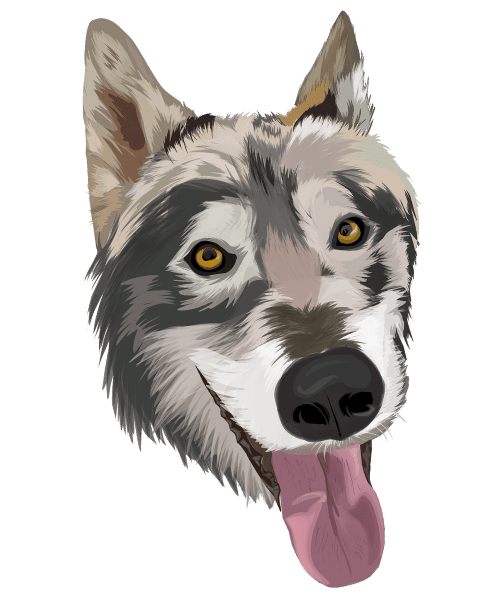
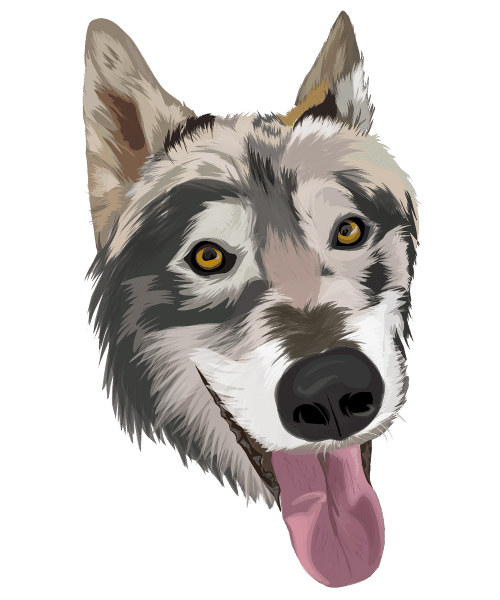
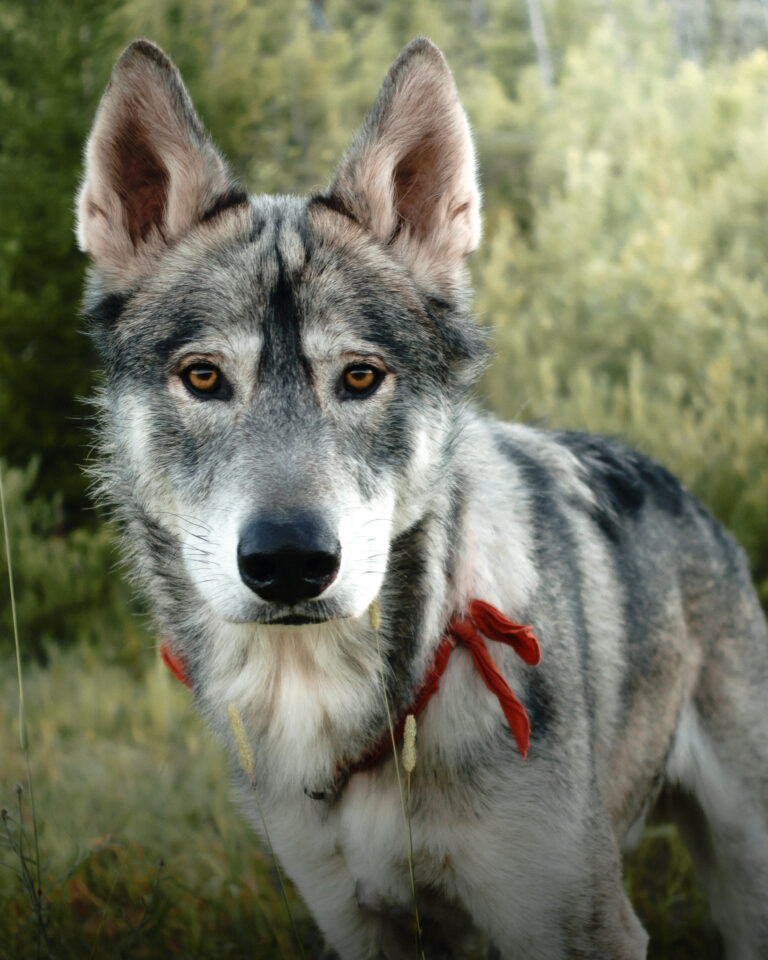
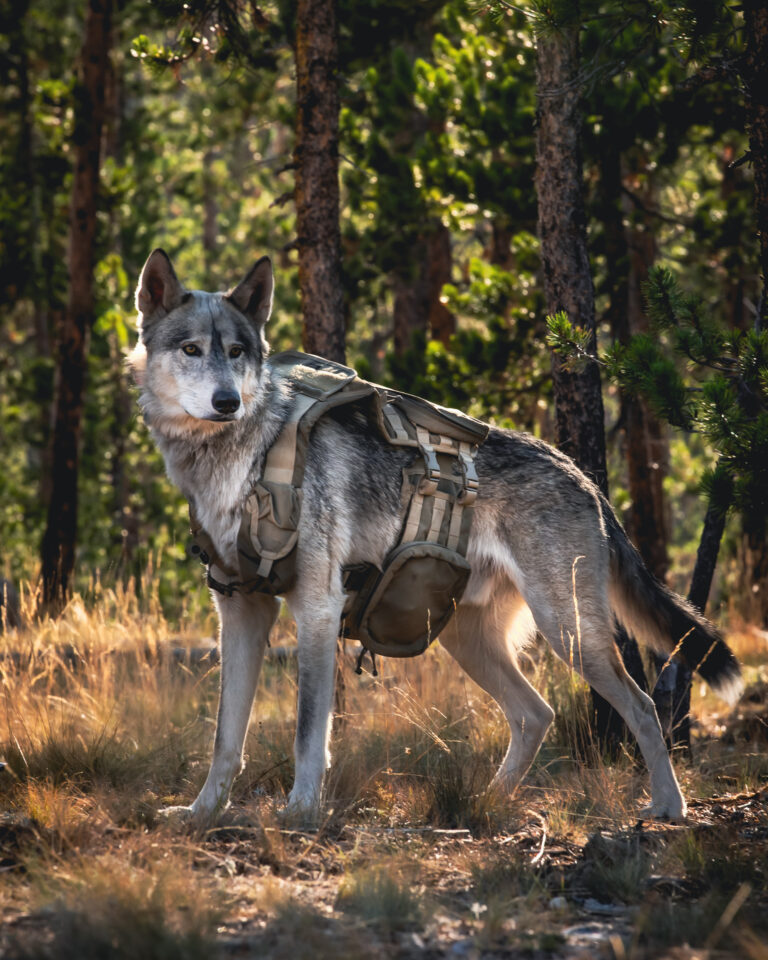
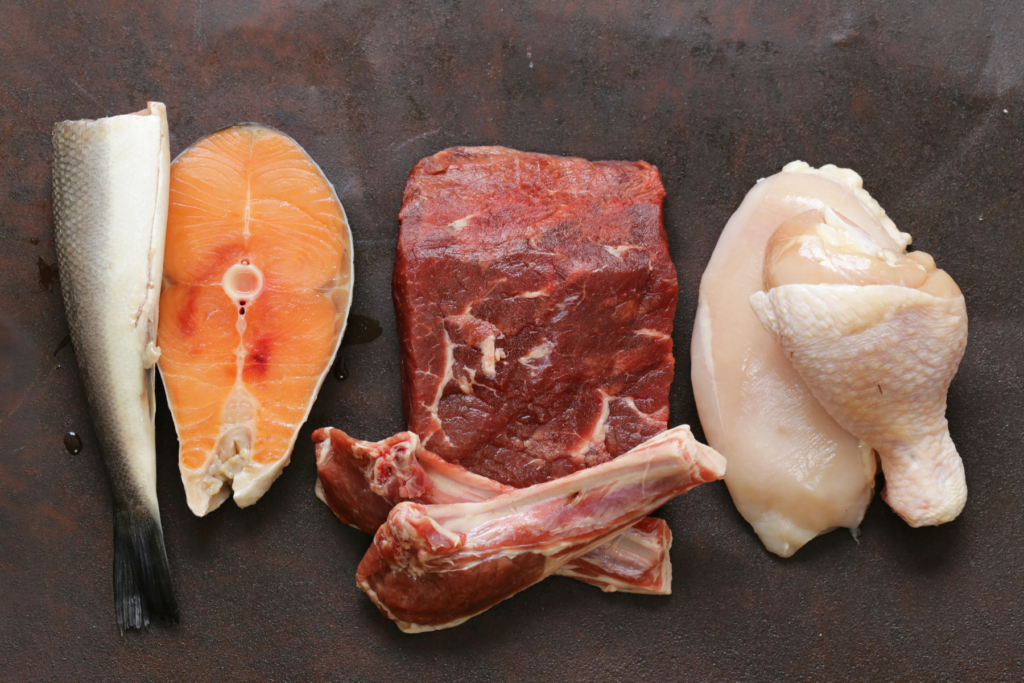
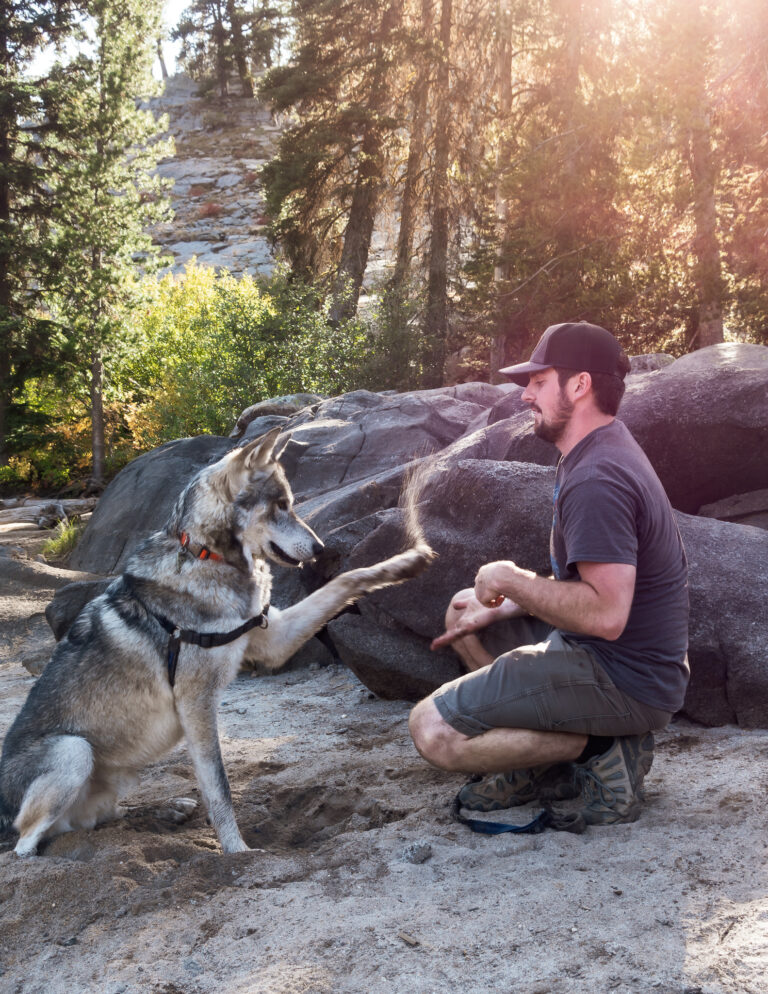

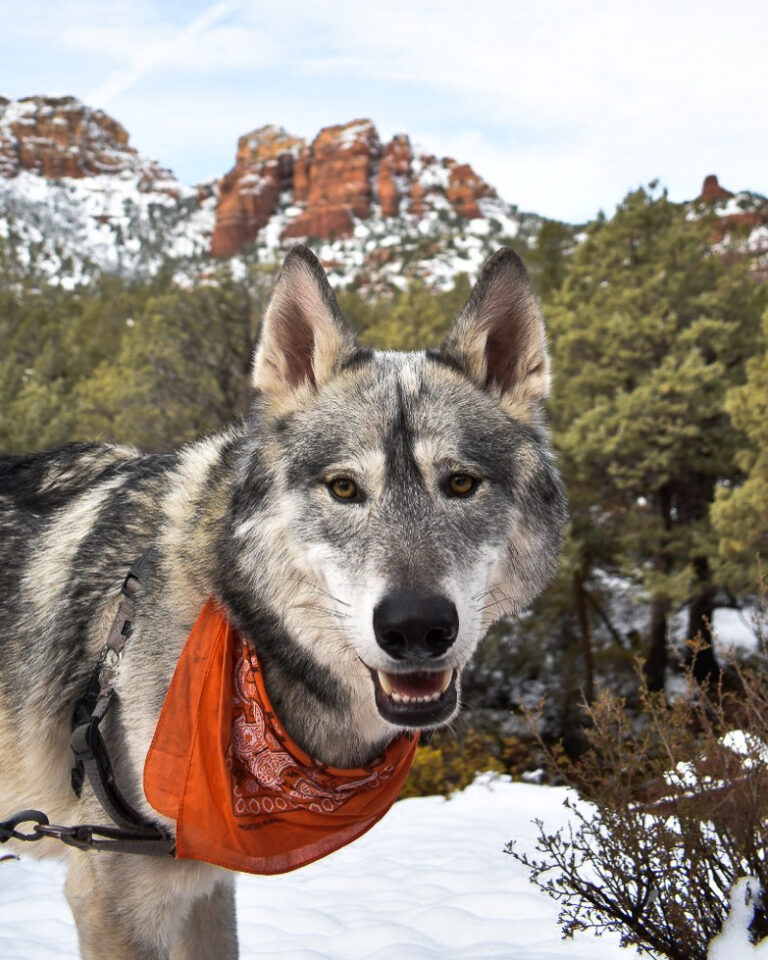
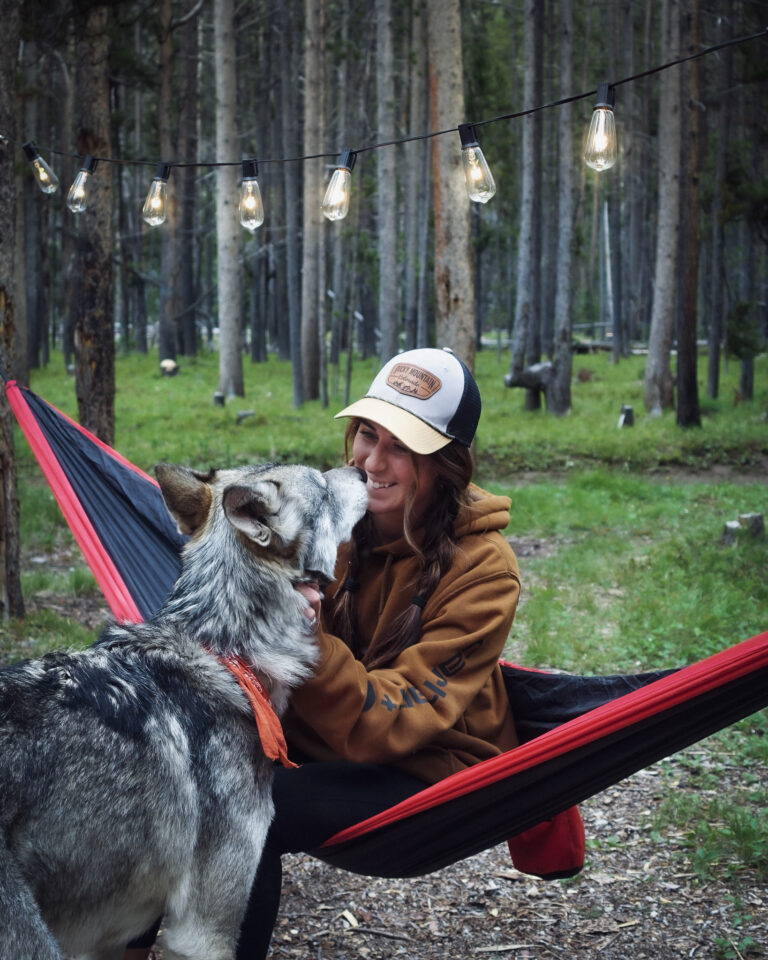

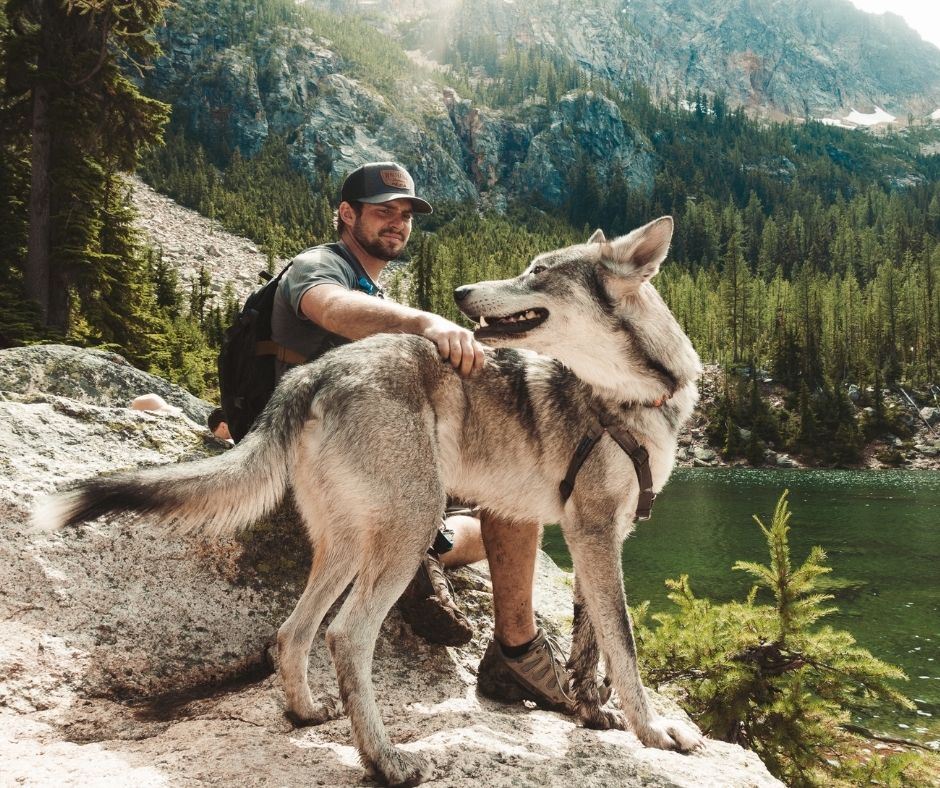
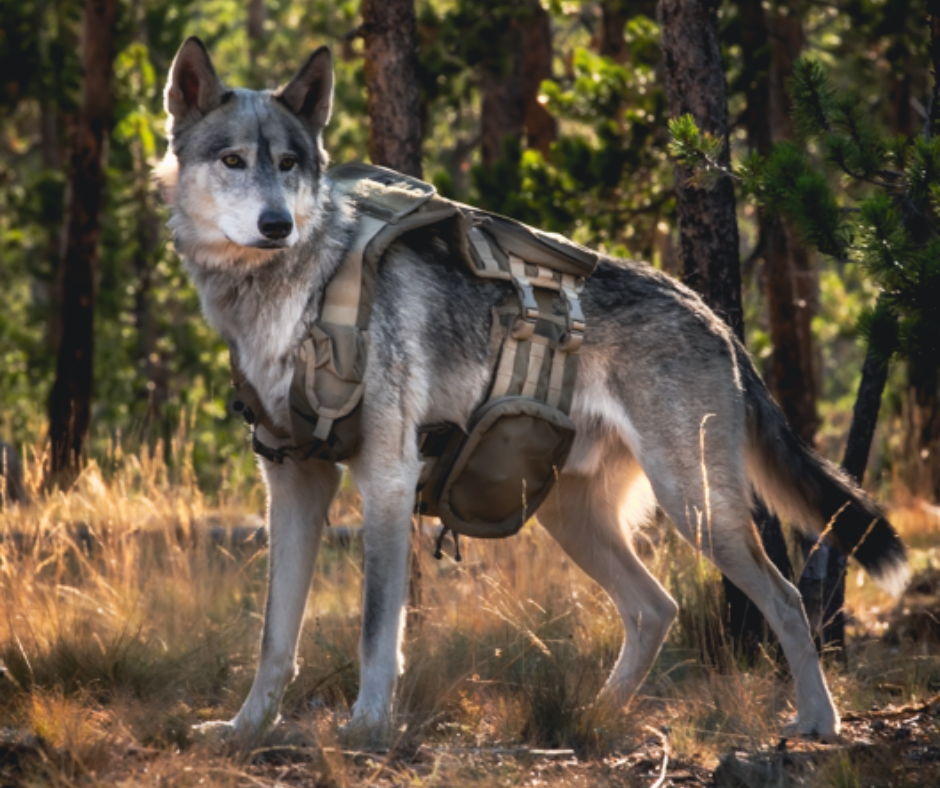
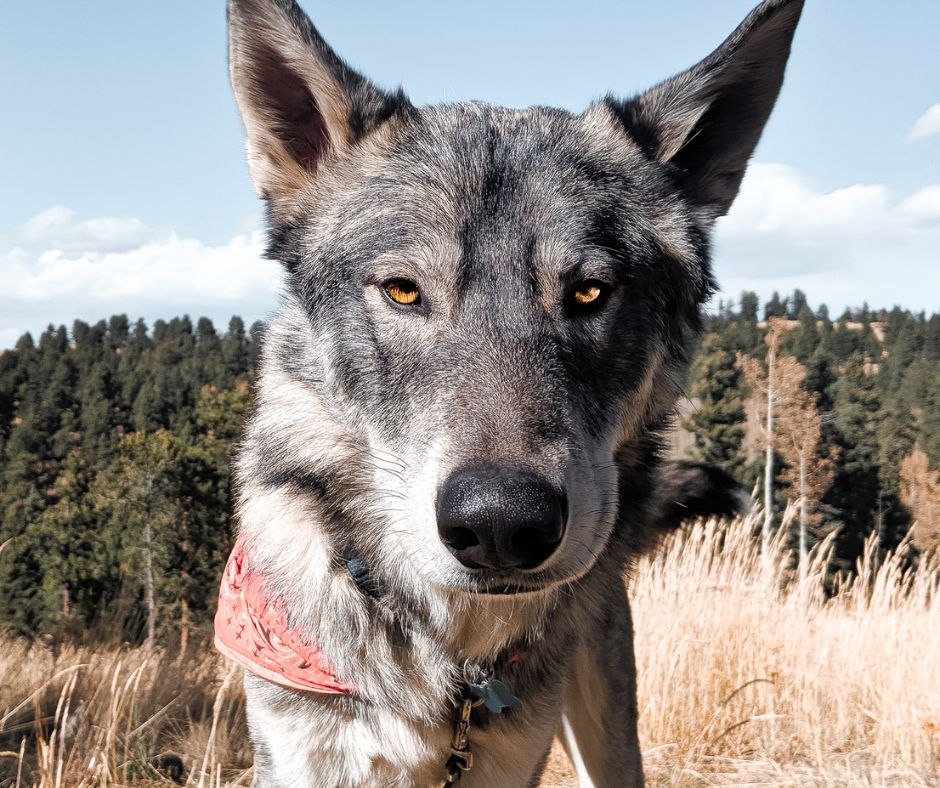
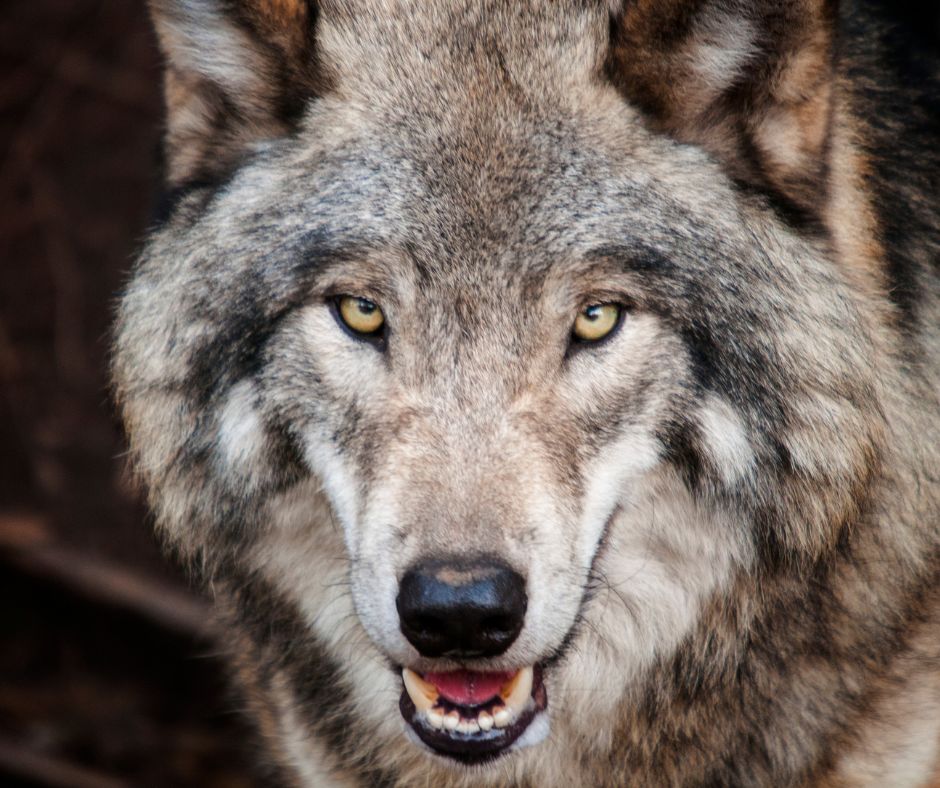
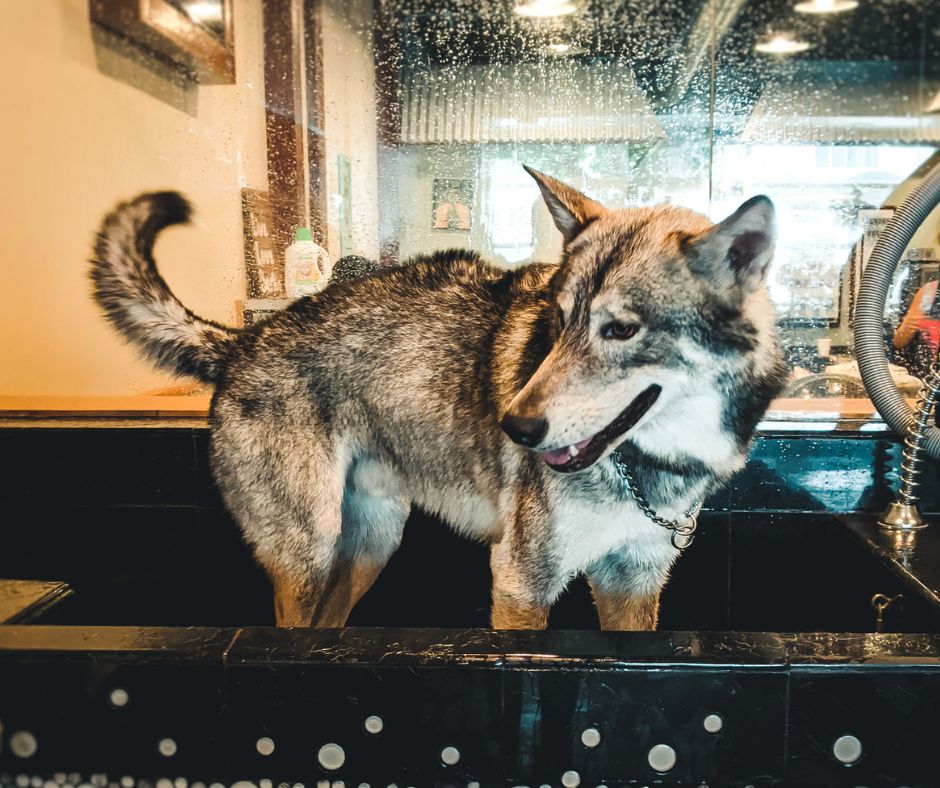
hi! i have a low content german sheperd/ wolf dog. can i put beef bone broth with some of his kibble?
Hi Amy! Yes bone broth is an excellent source of nutrition! I’m sure he would love the extra flavor.
I‘m about to buy two high content wolfdogs (about 95+%)
What’s a good diet for them?
Iris, the information you’re looking for is actually already provided in this blog post. As a general guideline, a diet high in protein and fat is recommended for high-content wolfdogs, and a raw food diet consisting of raw meat, bones, and organs is preferred.